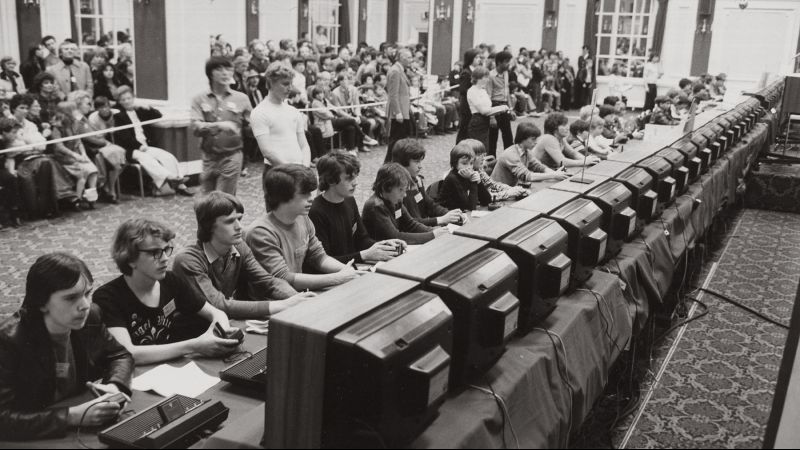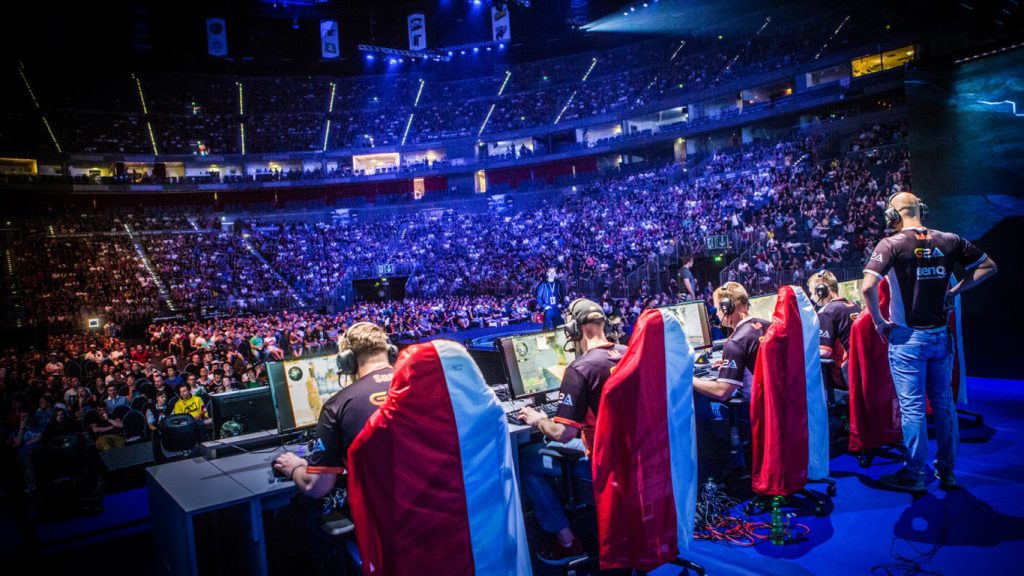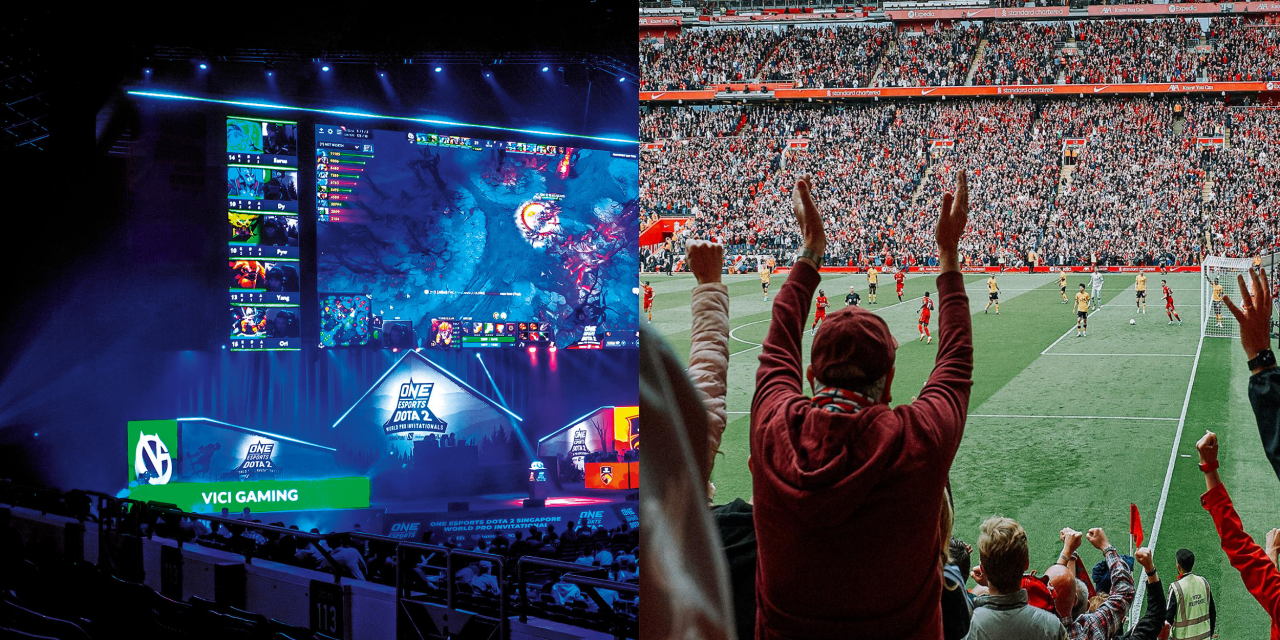In the age of digital technology, it’s no surprise that sports have taken a virtual turn. The rise of esports – competitive, organised video gaming – has taken the world by storm, redefining the landscape of competitive activities. But could they genuinely replace traditional sports in the future? In this article, we examine the potential and the challenges of esports in comparison with conventional athletic competitions.
The emergence of esports
Esports first gained recognition in the late 2000s, but it wasn’t until the past decade that they truly began to shine. Although their history goes back much further than that. with the first tournament taking place in 1972 at Stanford University, where players competed in the game Spacewar!
The evolution of video gaming, coupled with advancements in streaming technology and the rise of platforms such as Twitch, has propelled it into the mainstream.
Today, esports encompass a variety of genres, from real-time strategy and fighting games to first-person shooters and multiplayer online battle arenas (MOBAs). Major tournaments attract millions of viewers and offer hefty prize pools, placing them on par with some traditional sports events.

Esports vs traditional sports: The battle begins
Esports have certain undeniable advantages over traditional sports. Firstly, they are not bound by physical limitations. In esports, age, physical fitness, and geographic location do not hinder participation, making them more accessible to a wider audience.
Secondly, they can be played and enjoyed from the comfort of one’s home, making them particularly suited to our increasingly digital lifestyles. This benefit was especially evident during the Covid-19 pandemic, when many traditional sporting events were postponed or cancelled, while esports continued to thrive.
The challenges it faces
Despite the significant growth in recent years, there are notable challenges that they face before they could replace traditional sports. One of the main issues is the perception of esports. Video games are often seen as a form of entertainment rather than a competitive pursuit. Changing this mindset is crucial for them to gain the same level of recognition and respect as traditional sports.
Furthermore, their rapid development can also be a stumbling block. The landscape of esports is constantly changing, with new games frequently emerging and older ones falling out of favour. This makes it hard for a consistent fan base to develop and for players to maintain long careers.

The influence of media and sponsorship
One area where esports has seen explosive growth is in media and sponsorship. With an engaged, predominantly young demographic, it attracts significant interest from advertisers and sponsors. Brands see a prime opportunity in this new competitive scene to connect with a demographic that is traditionally difficult to reach through conventional media channels. This influx of revenue has contributed significantly to the growth of the esports industry.
Moreover, major broadcasters and media companies are investing heavily in it. Platforms like Twitch and YouTube Gaming have provided the infrastructure for it to grow, but traditional media companies are also getting involved. For instance, ESPN has embraced esports coverage, adding credibility and mainstream exposure.
Health and wellness in esports
Just like traditional sports, esports come with their health considerations. As these athletes spend a significant amount of time training on their computers, conditions such as carpal tunnel syndrome, back and neck problems, and eye strain can become prevalent. There’s also the risk of the sedentary lifestyle associated with gaming leading to obesity and other health issues.
However, as the industry professionalises, more emphasis is being placed on the physical and mental wellbeing of players. Teams are hiring physical trainers, psychologists, masseuses and nutritionists to support their players, just as you’d see in traditional sports. This professionalisation not only improves the sustainability of a career in competitive video gaming but also challenges the stereotype of gamers as unhealthy.

Can co-existence be the future?
Instead of replacing traditional sports, a more likely scenario is that esports will continue to coexist and evolve alongside them. Just as traditional sports offer a wide range of formats and experiences, so too can its potential rival. From casual gaming to professional competitions, esports offer a plethora of experiences that can cater to various preferences and interests.
Furthermore, the potential for collaboration between traditional sports and esports is vast. We’ve already seen this with the creation of dedicated leagues and tournaments affiliated with major sports franchises, and this trend is likely to continue. We’ve also seen professional sports players playing in competitive gaming tournaments.
The globalisation of esports
Another fascinating aspect of competitive video gaming is its global reach. While certain traditional sports tend to be regionally popular, esports are played and watched worldwide. The most popular esports games, like League of Legends or Counter-Strike, have a truly global fanbase and host international tournaments.
This globalisation is also evident in the diversity of the audience. With it’s online nature, fans can watch tournaments and engage with content regardless of geographical location. This international reach further underlines the potential of esports to coexist and collaborate with traditional sports, rather than replace them.

The final verdict
While the meteoric rise of esports is undeniable, it’s unlikely that they will replace traditional sports in the foreseeable future. Both forms of competition offer unique experiences and appeal to different audiences. Rather than viewing it as a threat to traditional sports, we should see them as a complementary addition, expanding the spectrum of competitive entertainment available to us.
In conclusion, the relationship between the two isn’t a zero-sum game. It’s about broadening the definition of sports and recognising the value of both physical and digital competition. Whether you’re a fan of football, Fortnite, or both, there’s plenty of room for passion in the expansive world of sports.
Fancy seeing us tackle some other tough questions in the sporting world? Head on over to our General section for a whole range of articles just like this.






Trackbacks/Pingbacks